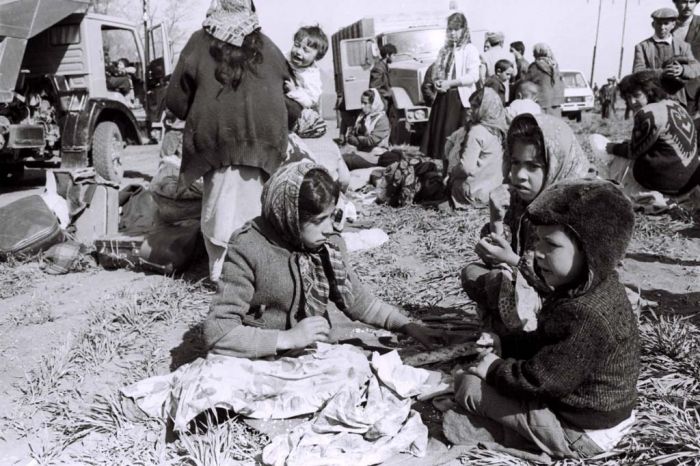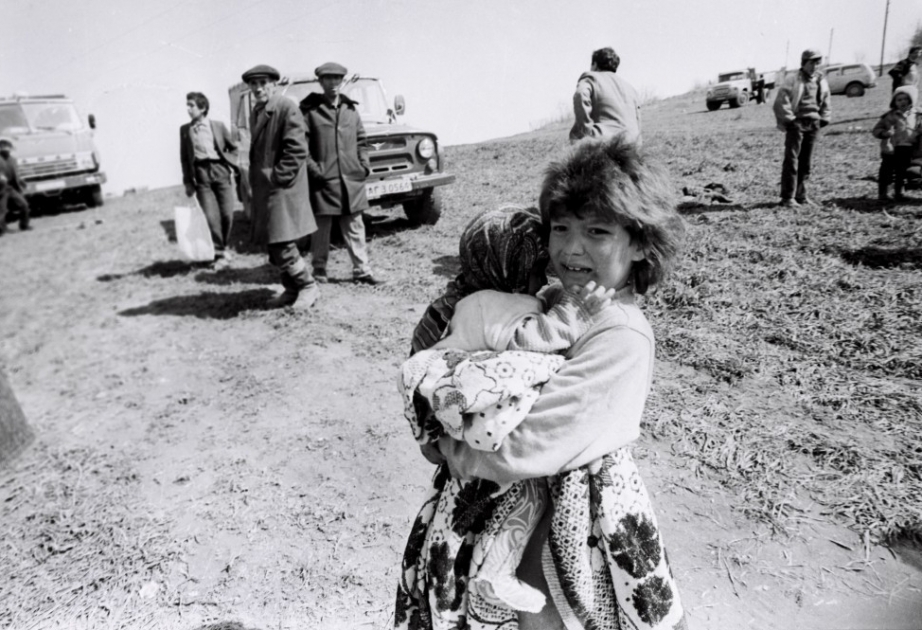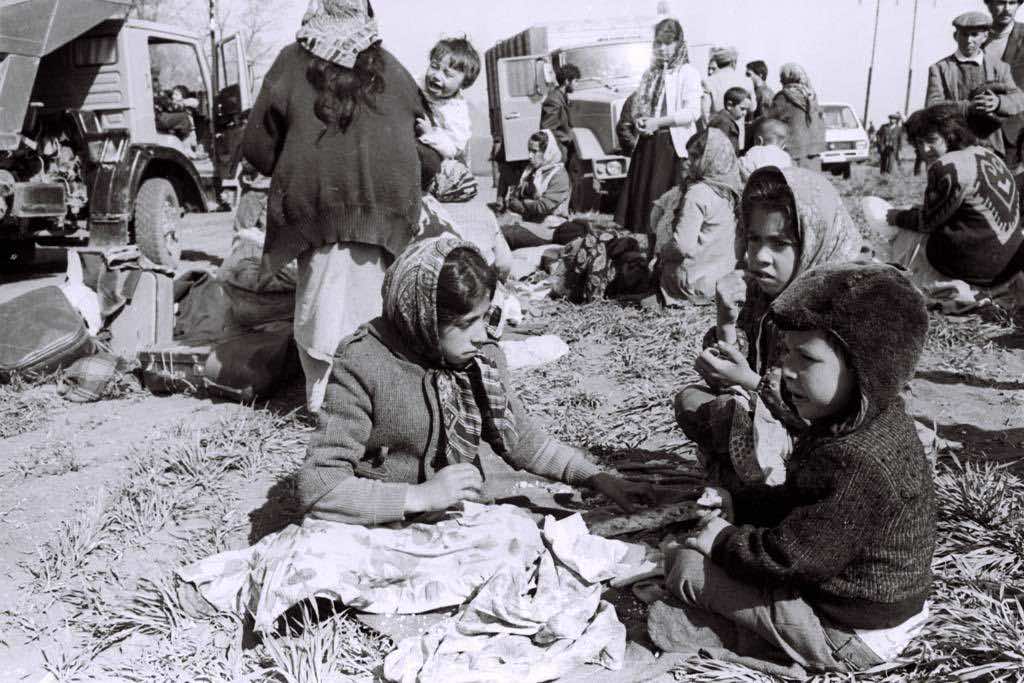World Refugee Day
 Each year on 20 June, the world celebrates World Refugee Day, the international day to honour people who have been forced to flee. The day was decided by the United Nations General Assembly on June 20. The resolution 55/76 was adopted on December 4, 2000. The purpose of this day was to remember the difficult living conditions of refugees and internally displaced people driven from their homes and to prevent their numbers from increasing. Refugee day plays a significant role in understanding the refugees who are going through various challenges on a regular basis.
Each year on 20 June, the world celebrates World Refugee Day, the international day to honour people who have been forced to flee. The day was decided by the United Nations General Assembly on June 20. The resolution 55/76 was adopted on December 4, 2000. The purpose of this day was to remember the difficult living conditions of refugees and internally displaced people driven from their homes and to prevent their numbers from increasing. Refugee day plays a significant role in understanding the refugees who are going through various challenges on a regular basis.
Every year, Azerbaijan celebrates International Refugee Day. The policy of ethnic cleansing, genocide and aggression deliberately carried out by Armenian nationalists against Azerbaijani people over the past two centuries represents extremely painful and tragic stages in the history of Azerbaijan, including bloody events. Azerbaijanis were the victims of genocide four times in one century, their historical lands were seized by their hated neighbours, as a result of which thousands of our compatriots were forced to live as refugees. The last wave of expulsion of the Azerbaijanis from their historical and ethnic lands in Armenia took place in 1988-1989 and saw 250,000 people become refugees. About 700 000 of our compatriots were expelled from Nagorno-Karabakh and 7 regions occupied by Armenian armed forces and temporarily settled in different regions of the country. At the same time, in 1990, up to 50,000 Meskhetian Turks, refugees from Central Asia found refuge in Azerbaijan.
The Azerbaijani state’s priority was always to solve the problems of our compatriots forced to leave their homeland. The foundations of the state policy in working with refugees and displaced persons in our country were laid by the great leader Heydar Aliyev and the necessary strategy for solving this most painful problem of our people was defined.
 Activity of the national leader in 1993-2003, his constant attention and care towards refugees and internally displaced persons and first steps aimed at liquidation of tent camps have served as basis for further work in this direction. Since 1993 the national leader of Azerbaijan Heydar Aliyev has signed 81 decrees and instructions for this purpose, the Cabinet of Ministers has issued 307 resolutions, the parliament has passed 24 laws. According to the long-term State Program “On Solution of Problems of Refugees and IDPs” adopted by the national leader in 1998, wide-scale measures have been undertaken for the social protection of refugees and IDPs and the construction of new settlements for our compatriots has started.
Activity of the national leader in 1993-2003, his constant attention and care towards refugees and internally displaced persons and first steps aimed at liquidation of tent camps have served as basis for further work in this direction. Since 1993 the national leader of Azerbaijan Heydar Aliyev has signed 81 decrees and instructions for this purpose, the Cabinet of Ministers has issued 307 resolutions, the parliament has passed 24 laws. According to the long-term State Program “On Solution of Problems of Refugees and IDPs” adopted by the national leader in 1998, wide-scale measures have been undertaken for the social protection of refugees and IDPs and the construction of new settlements for our compatriots has started.
Since 2003, President Ilham Aliyev has consistently and purposefully continued his work in this direction. Within 2003-2012 President Ilham Aliyev signed 49 decrees and instructions in connection with this issue. In recent years, Azerbaijan’s dynamic socio-economic development has created great opportunities for solving the social problems of refugees and internally displaced persons, and the scale of the work carried out to improve their housing conditions and increase their employment is overwhelming. In that connection, the Government programme for improving the housing conditions and employment of refugees and internally displaced persons, approved by a presidential order of 1 July 2004, is of great significance. Billions of manats have been spent on solving the social problems of refugees and internally displaced persons in Azerbaijan. A total of about a hundred modern settlements and residential complexes consisting of multi-storey houses have been built.
Over the years, the strengthening of the country’s economy, the foundation of foreign exchange reserves, the supplying of army with modern types of armaments and the successes achieved in diplomacy have enabled Azerbaijan’s army to begin its victorious march. The counteroffensive, which had begun on September 27, 2020, in response to another Armenian provocation, ended with victory after 44 days. The Azerbaijani Army, which is among top 50 strongest armies of the world, wrote a new page in the world military history by its bravery in the Second Karabakh War. Azerbaijan itself implemented UN Security Council resolutions that had not been complied with since 1993. By restoring our territorial integrity, the Azerbaijani army demonstrated once again to the world that we are a heroic, invincible, proud nation. During 44 days of occupation 5 cities, 4 towns, about 300 settlements, a number of strategic heights were liberated. Liberation of Shusha from the occupation on November 8, 2020 decided the fate of the war. On November 10 the Armenian Prime Minister signed the surrender act.
 The process of clearing our liberated territories of mines and other explosive devices has begun. Shusha, as the capital of our culture, is being rebuilt. Former displaced persons are returning to their rebuilt settlements. International organizations personally witnessed the consequences of Armenian vandalism. The concepts of smart city, smart village and green energy zone are favoured in the reconstruction and rehabilitation of areas liberated from occupation.
The process of clearing our liberated territories of mines and other explosive devices has begun. Shusha, as the capital of our culture, is being rebuilt. Former displaced persons are returning to their rebuilt settlements. International organizations personally witnessed the consequences of Armenian vandalism. The concepts of smart city, smart village and green energy zone are favoured in the reconstruction and rehabilitation of areas liberated from occupation.
The new realities have also created a legal basis for the wish of Azerbaijanis deported from Western Azerbaijan to return to their historical homeland. International humanitarian law provides an opportunity to realize this desire. The Azerbaijani Refugee Society, established in December 1989, and the Community of Western Azerbaijan, established in August 2022, are fighting for the compact return of Azerbaijanis expelled from their historical and ethnic lands. The main goals are to protect the material and cultural heritage of these people and appeal to international organizations not to allow their destruction, as well as to raise the issue with the Armenian government. A concept has been approved to ensure the peaceful, safe and dignified return of Azerbaijanis expelled from the territory of present-day Armenia.
We can say with confidence that thanks to the determination of the Azerbaijani people and the political will of the head of State, President Ilham Aliyev, the days will come when all our citizens, who have been longing for their homeland for many years, will be reunited with their ancestral land. In other words, the problem of refugees and internally displaced persons in Azerbaijan will be solved.
Recommended literature:
- Ələkbərli, Əziz Yusif oğlu. Qərbi azərbaycanlıların 1988-ci il soyqırımı : sənədlərin dili ilə / Ə. Y. Ələkbərli ; red.: B. Ə. Budaqov, H. İ. Mirzəyev, H. Ə. İsmayılov. - Bakı : Nurlan, 2008. - 560 s.
- Qaçqınların və məcburi köçkünlərin rifahı naminə = For the Welfare of Refugees and Internally Displaced Persons: İn three volumes / Azərbaycan Respublikası Prezidentinin Katibliyi. I cild. - Bakı : n. y., 2013. - 416 s.
- Qaçqınların və məcburi köçkünlərin rifahı naminə = For the Welfare of Refugees and Internally Displaced Persons / Azərbaycan Respublikası Prezidentinin Katibliyi. II cild. - Bakı : n. y., 2013. - 398 s.
- Qaçqınların və məcburi köçkünlərin rifahı naminə = For the Welfare of Refugees and Internally Displaced Persons / Azərbaycan Respublikası Prezidentinin Katibliyi. III cild. - Bakı : n. y., 2013. - 408 s.
- Qaçqınlara və məcburi köçkünlərə dövlət qayğısı: 2003-2013 / Azərbaycan Respublikasının İqtisadi İnkişaf Nazirliyi. - n. y. y. : n. y., n. i. y. - 76 s.
- Məmmədov, Rüstəm Fəxrəddin oğlu. Azərbaycanlı qaçqın və məcburi köçkünlərin problemləri beynəlxalq təşkilatlar müstəvisində / R. F. Məmmədov, S. A. Süleymanlı, X. R. Abbasov ; Azərbaycan Respublikasının Prezidenti yanında Qeyri-Hökumət Təşkilatlarına Dövlət Dəstəyi Şurası, Xəzər - Gələcək Naminə Tərəfdaşlıq Hərəkatı İctimai Birliyi. - Bakı : Səda, 2016. - 232 s.
- Allakhverdiyev, Galei Ali oglu. Armenian Aggression and Tragedy of Azerbaijanian Refugees / G. A. Allakhverdiyev, A. A. Saad. - Cairo : [w. p.], 1996. - 72 p.